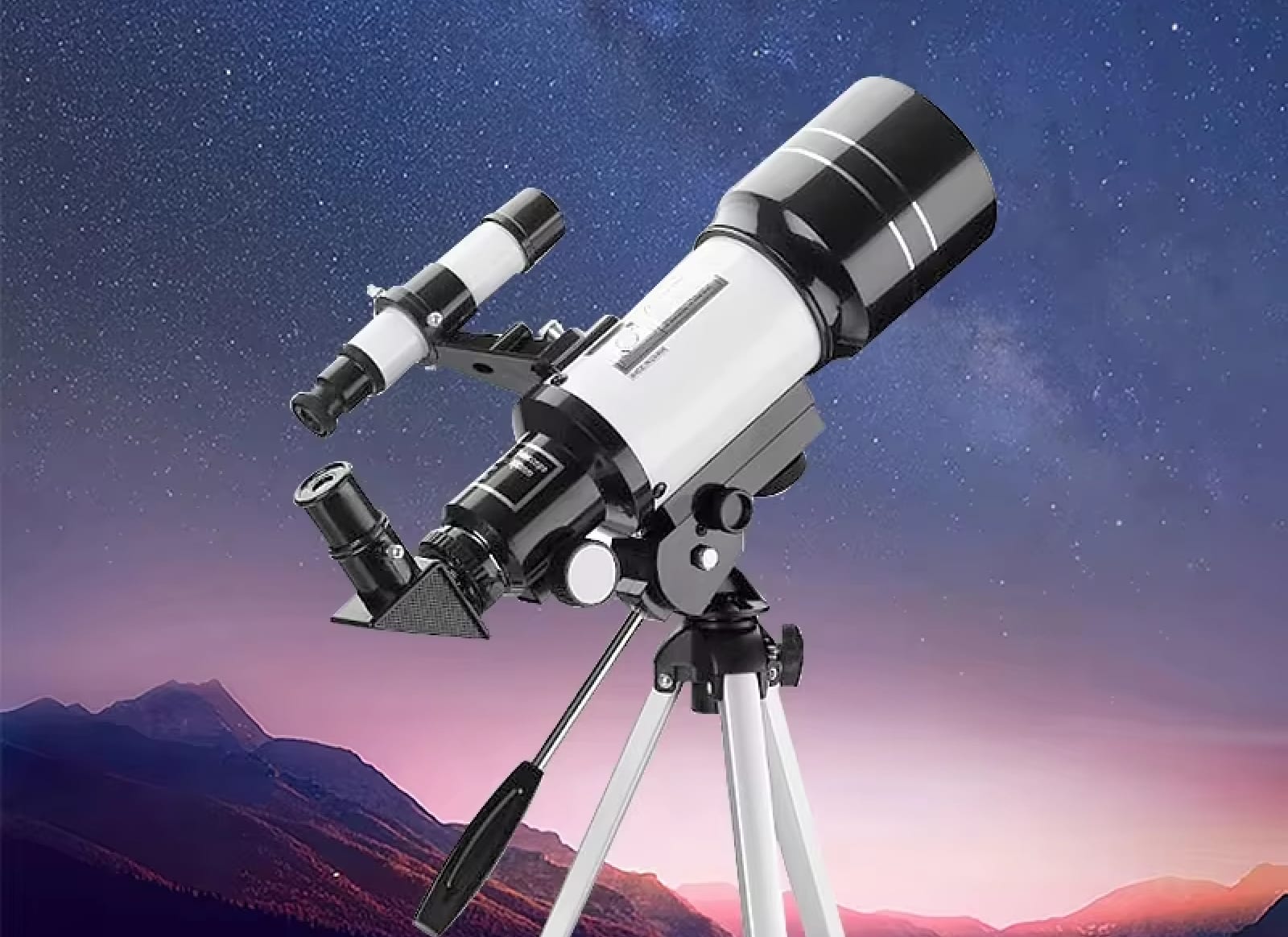
By Noah Bishop - Research Specialist
After years of dedicated research and thorough examination of tech gadgets and tools, Noah has immersed himself in the realm of technology, acquiring extensive knowledge. Explore his expertise showcased in our prestigious Top 5 series.

Finding the perfect telescope for astrophotography can transform your stargazing experience into stunning visual memories. Modern technology has made capturing the cosmos more accessible than ever before. 🔭
Today’s astrophotography telescopes combine advanced optics with user-friendly features, allowing both beginners and experienced astronomers to capture breathtaking celestial images. Whether you’re photographing planets, nebulae, or distant galaxies, having the right equipment is crucial. ⭐
The latest imaging telescopes offer incredible clarity and stability, essential for long-exposure photography of deep-sky objects. From computerized tracking to high-quality optics, these instruments make professional-level astronomy accessible.
With the right telescope, you can explore and document the wonders of the night sky in amazing detail. 🌌
Clarity and precision of lenses for sharp celestial views.
Measures light capture for visibility of faint objects.
Evaluates weight and setup ease for outdoor use.
Compatibility with cameras and software for imaging.
CosAtro V2 Telescope For Astrophotography introduces their premium astrophotography telescope, combining advanced optics with exceptional portability. 🔭
The telescope features a 70mm aperture system that delivers bright, detailed images perfect for both visual observation and photography. Its multi-coated optics enhance light transmission, crucial for capturing faint deep-sky objects. ⭐
The implementation of dual eyepieces provides versatile magnification options, while the stable aluminum tripod ensures steady imaging platform essential for long-exposure photography. The complete system comes at a reasonable price point, making it accessible to enthusiast photographers. 🌌
This model represents what many consider the best telescope for astrophotography in its class, offering professional features at an approachable price. Its combination of quality optics and stable mounting makes it perfect for both beginners and experienced astrophotographers.
The CosAtro V2 represents cutting-edge astrophotography technology at an accessible price point. With free shipping and 24/7 customer support, it offers exceptional value for astronomy enthusiasts. Its combination of premium features and user-friendly design makes it our top recommendation for 2025. EXPLORE NOW!
CosmoXper delivers professional-grade astrophotography capabilities with their advanced optical system.
The implementation of an 80mm apochromatic lens ensures superior color correction and sharp imaging across the entire field of view. The carbon fiber construction provides excellent thermal stability and reduced weight.
Moreover, the telescope features a high-precision focuser with dual-speed control, essential for achieving perfect focus in astronomical imaging. The computerized mount offers automated object tracking and positioning.
Integration of advanced guiding capabilities enables precise long-exposure imaging without star trailing.
UNISTELLAR presents their innovative approach to astrophotography with smart technology integration.
The system incorporates a computerized sensor system that enhances image capture and processing capabilities. Their proprietary software provides real-time image enhancement and stacking.
A notable feature is the automated alignment system that simplifies the setup process. The telescope includes integrated camera technology for seamless imaging.
The implementation of smart processing allows for enhanced deep-sky imaging even in light-polluted areas.
Celestron offers their trusted design for astrophotography enthusiasts seeking reliability.
The telescope features an 8-inch Schmidt-Cassegrain optical system that provides excellent light gathering capability. The StarBright XLT coatings enhance contrast and image brightness.
Integration of GoTo technology allows for easy location and tracking of celestial objects. The heavy-duty mount provides the stability needed for long exposure photography.
The system includes advanced software for both telescope control and image processing capabilities.
William Optics presents their specialized refractor designed specifically for astrophotography.
The implementation of FPL-53 glass ensures superior color correction and sharp imaging. Their dual-speed focuser provides precise control for perfect focus.
The telescope features a modular design allowing for various imaging configurations. The lightweight construction makes it ideal for portable setups.
Integration of standard imaging trains ensures compatibility with most camera systems.
A telescope for astrophotography is a specialized optical instrument designed to capture detailed images of celestial objects. These systems combine precise optics with stable mounting systems and camera adaptation capabilities to enable high-quality astronomical imaging.
These instruments are essential for amateur astronomers and photographers seeking to document the cosmos. Modern astrophotography telescopes incorporate advanced features like computerized tracking, specialized optics, and camera integration systems to facilitate both visual observation and image capture.

By Noah Bishop - Research Specialist
After years of dedicated research and thorough examination of tech gadgets and tools, Noah has immersed himself in the realm of technology, acquiring extensive knowledge. Explore his expertise showcased in our prestigious Top 5 series.
© 2024 TrustedBestPick. All rights reserved.
Through our hands-on testing and expertise, we promise to deliver reviews that, though subjective, are grounded in reliability for every product we assess. Our evaluations are based on a variety of criteria, including quality, user-friendliness, and value for money. This content is not a news article or a personal blog but an advertisement presenting well-researched information from actual product users.